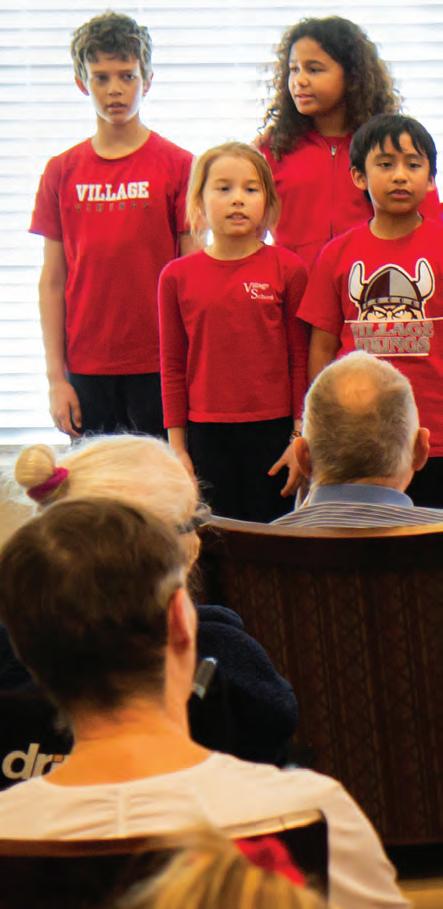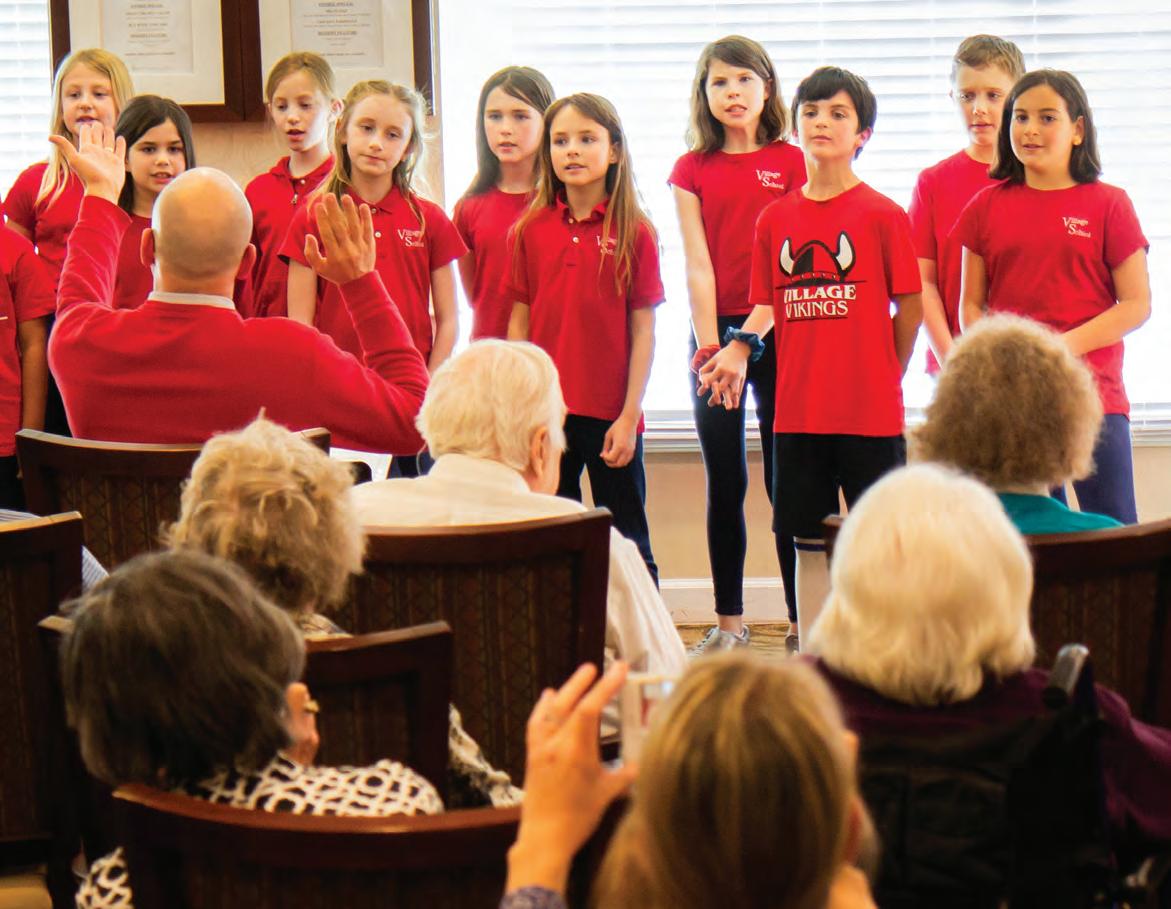
2 minute read
Your Brain on Music
by Greg Whitmore, Music Teacher

Advertisement
Last August, legendary crooner Tony Bennett performed his final concert at Radio City Music Hall, where he sang many beloved songs in the American Songbook to 20 standing ovations. What the audience didn’t see were the moments backstage when he had to be reminded of the setlist and two days later when he couldn’t remember that he had performed the concert at all.
About a year ago, Bennett’s family announced that he has Alzheimer’s. While difficult news by any stretch, Bennett’s performance represents the positive long-term impact that engagement with music has on the brain—in his case, to quite literally open up his personality via pathways of music memory when other things were forgotten.
Music at Village focuses on four key elements from the Orff approach—Sing, Play, Create, Dance. Music teachers have long observed the positive impacts of this approach,

Pre-pandemic, Village Singers perform at Atria Park Palisades for the residents. This tradition is one that Mr. Whitmore looks forward to bringing back to our community.
and recent neuroscientific research supports this. In a June 2019 interview with Minnesota Public Radio, Dr. Indre Viskontas, an opera singer and neuroscientist, points out that “music involves complex systems all over the brain, and can repair damaged areas.” An example of this is when U.S. Rep. Gabby Giffords relearned how to speak again using music. “When she couldn’t say the word ‘light,’ her speech therapist started to sing ‘This Little Light of Mine,’ and Giffords was able to sing along with her.”
Bennett’s neurologist, Dr. Gayatri Deri, said in an October 2021 interview with 60 Minutes that music stimulates the brain by “engaging multiple different parts of the brain. There is the auditory cortex for hearing. There is the part of the brain that deals with movement and dance. There is the visual system that gets engaged. So, it’s kind of like a wholebrain activator.”
People respond to the emotional aspect of music as well. Viskontas, in a September 2019 PBS Newshour interview, said that with music, “there is a buildup of the expectation of reward happening in the brain with the neurotransmitter release. We see the release of the pleasure chemical dopamine in the nucleus accumbens.” This has many practical applications for health and wellness.
Village Singers each year perform for residents at Atria Senior Living in the Palisades. The smiles on the faces of both residents and singers embody the latest neuroscientific research while providing a meaningful servicelearning experience. Every Village student’s engagement in music helps to strengthen their brain for the long term. ▼




